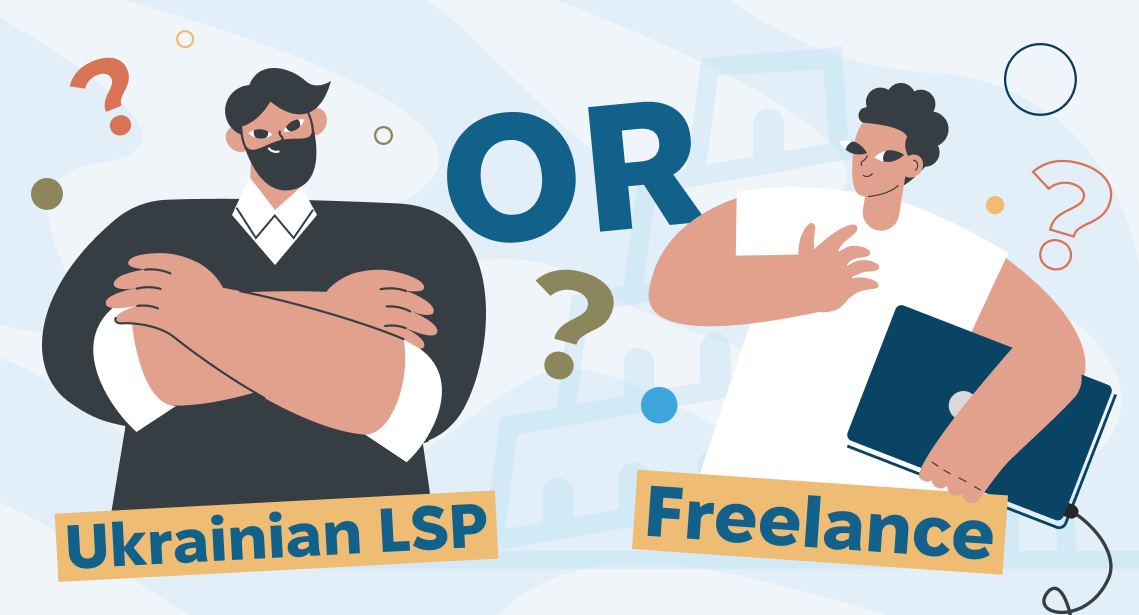Negotiating the cost of a translation

Plenty of companies get clients who will start from the assumption that simply presenting a potential job — particularly a big one — gives them sufficient grounds to ask for a discount. They lean on their potential contractor in negotiations, ask for concessions, and very often get them.
But when a client applies this same tactic to negotiating with a translation agency and gets that discount, it is usually a Pyrrhic victory. Below, we discuss how events develop in this case and why the same logic doesn’t work with translation agencies.
Some notes on the business model
The work of translation agencies is to carry out translation projects. This means:
- selecting qualified linguists;
- coordinating the work of translators and editors;
- managing deadlines;
- solving any problems that may arise in the course of the project (technical, organizational, financial, etc.).
If the client decides to pass up the agency’s services, they need to carry out these tasks themselves. However, the client is not normally a translation professional, meaning these operations will require serious effort and serious resources on their part: they simply are not qualified for it.
Ask anyone where a translation agency earns its money, and they’ll say, “What do you mean? From translations, of course!” Paradoxically, this isn’t the case.
The source of a translation agency’s revenue is not the translation itself, but the well-organized process of carrying out that translation. The agency doesn’t get its money from translating (it doesn’t carry out the translation — the translators do!) but from saving clients from all the problems connected with carrying it out.
The profit for the translation agency is the difference between its income (i.e. the money that arrives in its bank account from the clients) and running costs (payments to translators, editors, managers, office overheads, taxes, bank commissions, cost of computers, etc.). The margin tends to be around 10-20%. This means for a job worth $1,000 the agency earns $100-200.
Interesting fact: the size of the margin isn’t dependent on which end of the market the agency works in. Indeed, the percentage of earnings in both “expensive” and “cheap” agencies is roughly the same. But almost everything about the way they work is different: workflow, qualification of linguists, professional level of managers, quality control. They work in different niches of the market: Some deal with low-cost jobs for no-frills clients, while others focus on the premium sector. But the percentage of profit they generate will roughly be the same.
Asking for a discount
Imagine the scenario described at the beginning of this article: A client approaches the translation agency, gets a quote on the cost of a job, and then asks them to give them a 20% discount. Or — another similar situation — a client the agency has been working with successfully for a long time asks them up front to take 20% off the price. How should the agency respond in this situation?
On the one hand, you might have a huge job on the line that you don’t want to lose. On the other, it’s clear that if you’re following all the usual requirements to the letter (engaging qualified contractors, following all stages of quality checking, etc.) it will be impossible to stay on budget. After all, 20% of the cost of the job is the agency’s profit. Undertaking to do the job like this means best case scenario you break even — you recoup your costs.
Translation agencies tend to take one of two courses of action:
- Refuse to give the discount, explaining the reasons to the client, but risk losing the project.
- Grant the discount, drastically increasing the chances of getting the project.
Implications of agreeing to a discount
When someone asks for a discount, there is a conversation that takes place between the agency managers. Something like this:
— The client is asking for a 20% discount but promising higher volumes. Do we agree?
— …Well with that kind of discount the overall volumes we get will be low. It’s not like we’re a shop that can buy things cheaper if we sell more. In our case, extra volume means extra costs — the net cost of the work doesn’t drop. You can’t lower the translators’ pay proportionally — they’ll just refuse to work with us. We have a shortage of resources as it is. We just got a job through from another client, and they’re happy with our standard prices…
— But this is a big project, we don’t want to let it go…
— And if we agree, we won’t make any profit. We take 15% on their jobs, and they want a discount of 20%. Why would we take on a job like that?
— Couldn’t we somehow reduce our costs?
— Theoretically, we could… For example, if we just leave out the proofreading and don’t pay any editors. Then we would be in the budget.
— Let’s do it that way, then. That’s how most of our competitors operate, after all, whatever they write on their websites. At that price, no one could provide better quality than us anyway.
— But it’s a breach of the process!
— Officially, yes. But if the client makes demands like this, then apparently they don’t want to follow the official process.
— …Fine, we’ll take the risk.
In other words, the client believes they have managed to lower the cost while getting the same result. They have forced the agency to reduce their costs on the project by eliminating one of the stages of quality control. What they end up buying is not quite the service the agency originally offered. Otherwise, the project wouldn’t be economically viable for the agency: it would be easier for them simply not to take it on.
More on lowering costs
There are two main ways to make the translation process cheaper if a client is trying to squeeze prices:
- Skip over one of the production stages. For example, don’t employ an editor to proofread the text.
- Hire less expensive translators, editors, and project managers. Of course, the quality of their work will be respectively lower.
If you apply both “methods” simultaneously, you will cut down costs exponentially. You could even use a student, for example, and send their “translation” to the client without checking it. (A shrewd student might in turn save themselves some trouble with the aid of machine translation.)
This kind of “cutting the costs down” is restricted only by how far the agency is prepared to go to woo a client with low prices, and at what point they will turn down a job for fear of ruining their reputation.
Conclusion
There are two possible outcomes to this story:
- The happy ending. The client happens to be pretty easy to please and is completely fine with a “sub-translation.” As long as they don’t notice any mistakes, they’ll be happy. A lot of agencies make compromises like this, especially those struggling to get jobs.
- Realization and shock. It suddenly transpires that the “translated” text needs serious work (or a complete re-working). The client is scandalized and begins a long war of words that is unpleasant for both parties. To avoid situations like this, some agencies either simply turn down low-budget jobs, or absolve themselves of responsibility for the quality before starting any work.
People have to understand that translation is a service, not a product. It requires qualified contractors, and there are scarcely enough of them around; agencies rely on having good relationships with them. It is therefore impossible to make substantial discounts without harming quality.




